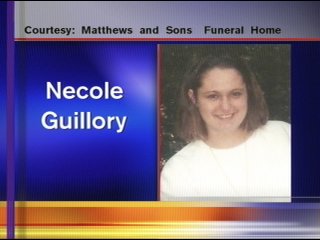 Advanced Investigative Technologies, LLC
Advanced Investigative Technologies, LLC
Licensed by the Louisiana State Board of Private Investigator Examiners
License Number: 5716-040104-LA
Advanced Investigative Technologies, LLC
510 3rd Street
Jennings, LA 70546
ph: 337-246-0933
alt: 337-368-4059
info
- Home
- The Owners
- Mission Statement
- Services
- Home Security Products
- United States Constitution - Bill of Rights
- Coverage Area
- The Private Investigator Oath
- Media
- Press Releases
- Kirk Menard on Geraldo Rivera
- Kirk Menard in the Press
- Investigating the Investigator
- Review of Cellular Phone Spy Programs
- No Right to Police Protection
- Wiretapping, Invasion of Privacy, and Bug Sweeps
- Articles authored by Kirk R Menard
- Cyberbullying and the law
- Links
- Become a Private Investigator
- Testimonials
- Contact Us
- Service Request Form
- Quotes to Live By
Articles authored by Kirk R Menard
.
Credibility
Credibility refers to the reliability of testimony, based on competence of the witness and likelihood that it is true. It may also refer to someone's reputation for truthfulness. Credibility of testimony is usually supported by other substantiating evidence, but credibility is often a subjective determination to be made by the trier of fact (judge or jury). In general, the rules of evidence disallow character witnesses to be called to testify to a witness' reputation for truthfulness or untruthfulness unless such reputation for truthfulfulness or untruthfulness has already been attacked. (definitions.uslegal.com/c/credibility).
As investigators our job is to determine facts and find the truth. Our clients, usually attorneys, depend on us to gather facts, evidence, and learn the truth of an issue. Our record must be unblemished in order to establish credibility. As we are instructed in the private investigative industry..."if we cannot attack the evidence, then we attack the credibility of the witness." The facts, evidence and truth, as we determine may be against those that we represent. Our job is to uncover those facts and turn it over to our client, the attorney, and let him decide on how he/she wants to proceed.
Also, we must be careful not to taint the facts, evidence or the truth. For instance, leading witnesses during questioning can taint the facts and distort the truth. When collecting evidence, a chain of custody must be performed, especially if delivered to a lab and the process by which the evidence is gathered must be disclosed otherwise, it could be determined that the evidence has been tainted.
Sometimes we are asked to question witnesses that are not that reputable and who's credibility may come into question. Our job is to determine and gather facts about the witness, why his/her credibility may come into question and attempt to mitigate that creditbility through circumstances. We must ask open ended questions and allow the witness to speak freely and keep him/her talking during the questioning phase. We must then ascertain the facts and determine if there is a reasonable assumption, based on a collaboration of other facts, if the witness is telling the truth and has given accurate information. Sometimes background checks on the witness may be necessary. Background on a witness may include but not limited to criminal history, employment history, financial stability, standing in the community, character of the witness, and the general overall nature of the witness.
If a witness, including an investigator, does not have credibility, then the witness and/or investigator can be impeached and the testimony will be disregarded. Investigators must be professional, dress professional, speak professional, and conduct him/herself professional in his/her personal as well as professional life. Remember also that once your credibility as an investigator is called into question, it may be very difficult, if not impossible, to regain that credibility. Reason being, each time you are called to testify, the previous credibility issue may come back to haunt you. Some issues that may raise credibility issues are being arrested (unless other circumstances are present that you may not be guilty), contempt of court, perjury, lack of character (being sued for fraud, lying, stealing, cheating, etc.,), repeatedly being reported to licensing authorities where competence and truth is called into question, falsifying reports, history of unethical behavior, and any public record that questions your credibility.
We must be mindful that we are in a trade/occupation that requires us to be competent, ethical, moral, and truthful in all we do. Sometimes the first impression is the only impression we may get.
Another Body Found
Necole Guillory's body was found between mile markers 72 and 73, which is basically the Egan, Louisiana exit. She was dumped on an embankment off of Interstate 10.
- We have not changed our position. We still believe that a serial killer or killers are involved in these unsolved homicides. The residence that all of the victim's had once frequented had been under surveillance by our investigators for some time now. Necole Guillory was observed coming and going to that residence. Necole was 27 years old and had four children. Coincidentally, in April of 2009, we moved our main office from Jennings, Louisiana to Egan, Louisiana and Necole's body was dumped approximately 1-1-1/2 miles from our office. We've entertained the idea that the person or persons responsible may be playing a "cat and mouse" game but we have since ruled that out because most perpretrators that play such a game will usually make phone calls, leave letters, etc., We believe she was dumped in the area she was dumped because the other areas were being observed by law enforcement and our investigators. The person or persons responsible did not have the opportunity to dump a body in or near the usual rural areas in Jeff Davis Parish. Why Acadia Parish? For one, evidence suggest a hotel where some of the girls hung out in Crowley, Louisiana. Evidence and facts also suggest a Truck Stop near I-10 where some girls hung out, and Necole was observed at that truck stop. She was acquainted and new the other victims personally.

 How to Work Independently of law enforcement as a
How to Work Independently of law enforcement as a
private investigator
Many times in the professional investigative field, we are retained by clients that request our assistance. Many times law enforcement may be currently investigating the case. Does law enforcement welcome professional investigators into the investigation as an independent agency? You, may be welcomed but in many cases you may realize much resistance from law enforcement. Many are faced with this dilemma so what is the answer? If you are in a licensing state, remember that loyalty to your client is first and foremost.
For instance, you may be hired by a client whose residence had been burglarized and feels that law enforcement isn’t doing enough to solve the crime. You must remember that as the burglary is an open investigation by law enforcement, you may not be privy to police reports or any of their information. Law enforcement considers professional investigators civilians and may not be cooperative so your investigation will need to begin from scratch. Your investigation should be independent from law enforcement. Allow law enforcement to perform their investigation and you perform your investigation.
This can sometimes be a tedious task if you are retained on an unsolved homicide case and we know from experience that dealing with law enforcement on unsolved homicides can be frustrating. If you expect to obtain any confidential, non-public information from law enforcement on an unsolved homicide, you may as well forget that notion. Unless you have an inside source chances are it will not happen. Many law enforcement agencies seem to be very frustrated and reluctant to cooperate when professional investigators are retained to conduct an investigation when law enforcement is currently involved in the investigation. For some reason, law enforcement may consider it a “turf” war. While I realize this may be a controversial subject for many professional investigators simply because many professional investigators are former law enforcement officers, it is reality that many of us face. This is true when it is a high profile case and the media is heavily involved. Law enforcement may not say much to the media so to obtain a story the media will next turn to the professional investigator (if the client consents after consultation) for an interview. There are many issues to consider when accepting a case in which law enforcement is currently involved. Loyalty, as discussed earlier, is you’re first and foremost priority. What about confidentiality? Confidentiality and reporting crimes to law enforcement can sometime conflict. State law dictates that client confidentiality is also eternal and first and foremost. While a client may waive, either in writing or implied, confidentiality, some parts of confidentiality remain, such as revealing your clients. This is especially the case when there are multiple clients. Some may waive confidentiality while others may not. As noted earlier, loyalty to your client is a priority and confidentiality is eternal. However, we walk a fine line between loyalty, confidentiality, and obeying the law to turn over all information regarding a crime or crimes that has been committed.
Some tips when working with law enforcement are to assure them that you intend to cooperate fully and inform your client (s) that you must cooperate with law enforcement and report any crime or crimes you may discover during your investigation. When the media is involved and your client (s) give consent for you to comment, be careful not to discuss specifics of a case so that they integrity of the investigation may be maintained. You may also reassure the media that you are cooperating fully with law enforcement and it is not your intent to be a hindrance to their investigation. Some obstacles that you may face in the professional sector when investigating a criminal case from law enforcement is that they will feel that you are withholding information, they may feel that you might taint any evidence you discover, they may try to openly discredit you and your abilities as well as your investigation, rumors may be created about you, your family, your personal history and this is especially true during a high profile investigation. As an investigator in the private sector, its important to remember to be professional and refrain from speaking ill about law enforcement. If they do it to you, maintain that professionalism and do not stoop to that level. Think of your client (s) and always represent their best interest. Separate loyalty, confidentiality, diligence, and that fine line of reporting crimes committed that must be reported to law enforcement. Do not withhold evidence from law enforcement. We are currently working on a serial homicide case and have met and are still faced with the obstacle of resistance from law enforcement. They do not want us in this investigation. However, we have always been professional, our media interviews have been professional, and we have turned over every bit of information, even hearsay, to law enforcement and the task force. It’s for them (law enforcement) to determine what evidence is credible or not and it is for you to turn in any evidence that my assist in the case. It’s not about who solves the
case, as long as the case gets solved. You, as a private investigator, must remain credible at all times, despite the rumors and the attempts to discredit you and your investigation. Everything you do in the investigation must be positive reinforcement to law enforcement.
This is not to be negative towards law enforcement. Most law enforcement agencies welcome professional investigators and don’t care where the information comes from just so it comes. However, there will be those times that you will meet resistance and face obstacles. We, as professional investigators must maintain professionalism and rise above the rumors, attempts at discrediting and focus on the objective…which is being an asset to our client (s) and assisting in solving the case.
Advanced Investigative Technologies, LLC
510 3rd Street
Jennings, LA 70546
ph: 337-246-0933
alt: 337-368-4059
info